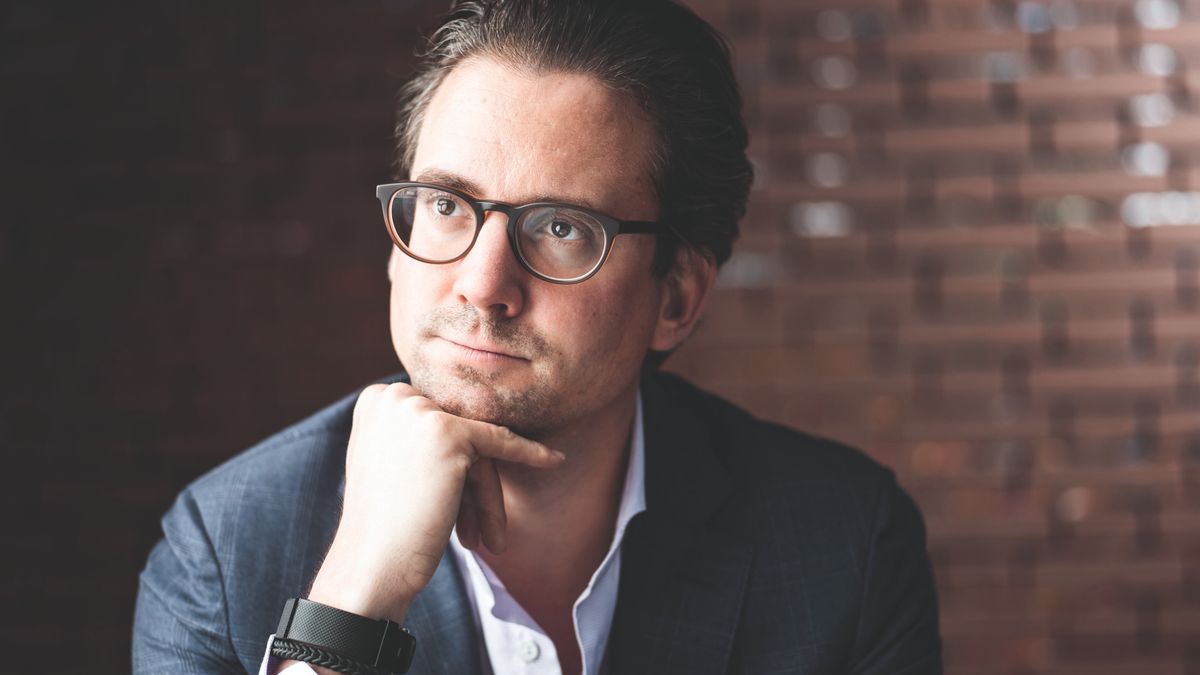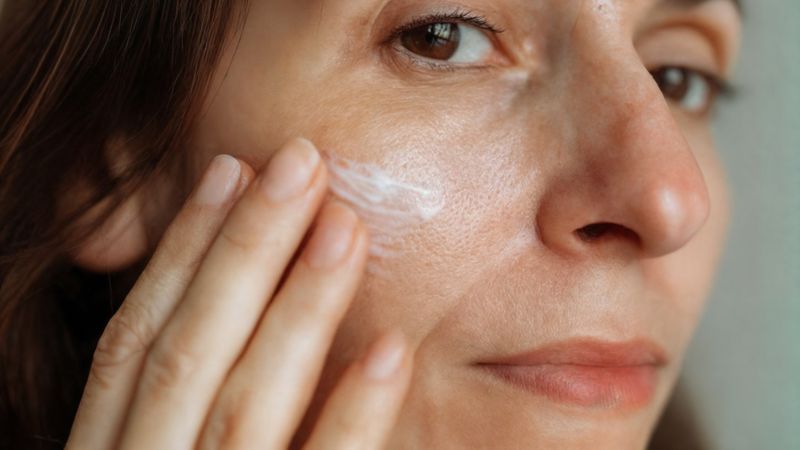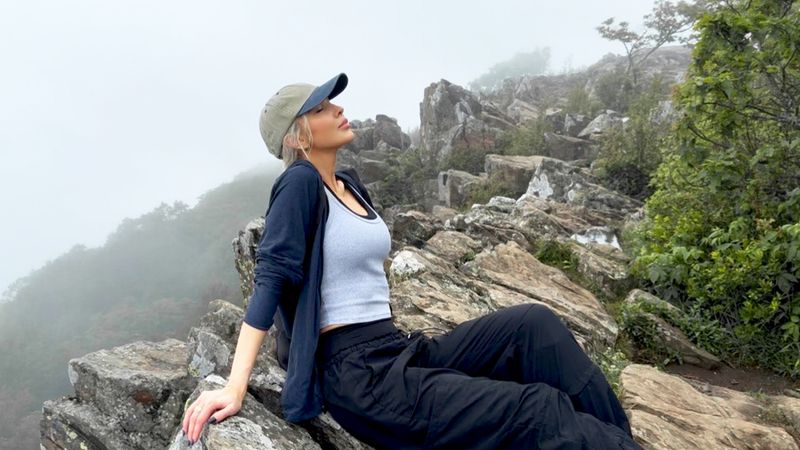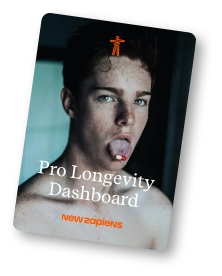Founder interview: Marc P. Bernegger, co-founder of Maximon

In this interview, Marc P. Bernegger shares his journey in the last 26 years from founding early internet companies to pioneering ventures in Bitcoin and longevity. He explains the role of Maximon, which was founded in 2021, in bridging the gap between scientific research and the business world, discusses the evolving landscape of health and longevity, and reveals how he balances multiple projects while maintaining a healthy lifestyle.
Marc, please introduce yourself and tell us about Maximon.
I founded my first internet company in 1999 right after high school and have always been fascinated by new topics. Back then, I was the only one in school with an internet connection — unimaginable today. In the mid-'90s, I recognized the potential of the internet and, driven by my interest in new technologies, felt the need to start my own companies. My first platform was a party platform, which we later sold to Springer. After that, I built a ticketing platform at a time when it wasn’t common to sign up and pay for events online; I eventually sold that to Xing. I then became involved in the Bitcoin space in 2012 — not as a speculator or investor, but as an entrepreneur interested in new technologies.
In 2017 we launched the Crypto Finance Group, which we later sold to the Deutsche Börse — one of the largest exits in the Swiss startup scene. During this journey, I identified for myself longevity as a new mega-trend. I have been following this topic since 2009, much like I did with the internet or Bitcoin, having gotten involved very early on a personal level. Four years ago, my partners and I decided it was the right moment to re-enter the business side of this field. In 2021 we founded Maximon. Unlike in 2009 — when the focus was primarily on futurists, transhumanists and utopians with little scientific backing or concrete applications — the landscape has changed dramatically in recent years. You, too, with New Zapiens, are a fascinating example, and that marked the starting point for the activities we now pursue with Maximon and our community.
Could you describe who is at Maximon and who you have in your portfolio?
Yes, it's important for us to say that we are a mix of serial entrepreneurs, investors, scientists, and physicians. We always strive to bridge the gap between science, research, and business. We've found that while there are many brilliant researchers and scientists, they often lack the business drive. If you want to do something seriously in this field, it must also be scientifically supported. We see Maximon as a bridge between research and the business world. We bring together those who take over projects with people who can build companies and manage distribution—essentially, everything that researchers typically don't possess. From the very beginning, it was important for us to identify topics that are not only going to be relevant in 15 or 20 years but that already have a measurable impact on people's lives today and are monetizable.
Who do you have in your portfolio?
Our first company Avea, which we launched three years ago, is a supplements company that has developed extremely well. It became profitable after 26 months and now generates several million in monthly revenue, with a significant part coming from Asia. We have heavily internationalized, and that's very exciting. For us, it's important to own our own patents—it's not just a marketing play. We don't want to sell snake oil; we really want to help people achieve measurable effects, for example, by delaying the aging process and optimizing health.
Then we have another company called Ayun that we started last summer in Zurich. It operates in a 560-square-meter, fully regulated center in a prime location. We function as a clinic — hence we can call it a clinic. This means that, although it comes with all the restrictions (with doctors on-site, everything very expensive and elaborate), it is regulated just like a doctor's office or a hospital, which enables us to offer only serious and proven treatments.
Additionally, we have a company in the machine learning sector called Biolytica — a B2B play. We also have a company in the female menopause area called Frida Health. Beyond that, we are seeking partners to cover the entire spectrum of applications—not just biotech, but topics that are tangible today.
How do you balance your various commitments and projects with a healthy lifestyle?
I always say that, unlike my partners, I don't live all the longevity ideals 100%. My first company was a party platform — so I still enjoy having a drink and don't adhere to an ultra-conscious, healthy lifestyle. However, I optimize many small things in my everyday life, such as incorporating more movement, getting fresh air, and taking walks in the forest — simple yet effective measures.
Then there are shortcuts like red light therapy, oxygen therapy, and personalized supplementation. I've seen how you can achieve noticeable and measurable effects without completely turning your life upside down. That's my advice: The data is pretty clear about what is healthy and what isn't. Many things we do should simply be cut out — that alone would be the biggest health improvement for most people.
I'm also a big advocate of the Blue Zones approach. Whether every aspect of it is 100% scientifically proven or not, the idea is to spend more time outdoors, enjoy life, and not obsess over perfect health metrics. If I stay up a bit later on occasion because I had a great evening, that’s far more valuable to me than a perfect sleep statistic.
Let's get specific: Which supplements do you take regularly?
Since we have our own supplement company, Avea, I naturally take many of our own products because I believe in them. We produce in Switzerland, and I review the tests and the reference values myself. But independent of our own products, I would say: I am a big fan of supplements.
I take the classic mix: magnesium, zinc, and vitamin D — which I believe is beneficial for everyone, regardless of diet. NMN was the first supplementation for which I experienced noticeable, measurable effects after just a few weeks.
Additionally, I've discovered collagen. We developed our own patented solution, and I know the studies behind it — one of which will be published soon. It was impressive to see how such a product can produce measurable effects in people.
I also have a few personal favorites, like creatine and apple cider vinegar — something my grandmother recommended. I take magnesium situationally after sports, and green tea is a staple for me — plus, I drink plenty of water and avoid soft drinks as much as possible.
I continually experiment with new things. Although I haven't been drawn to peptides or other advanced biohacking approaches so far, I'm open to change. Four years ago, I didn't take any supplements at all, except perhaps a multivitamin occasionally, because people believed it would help prevent colds. However, my behavior has changed dramatically with the knowledge I have today. I believe many people still massively underestimate the impact that supplements can have on their health.
What were the most important learnings from your journey?
That's a great question. I was surprised to learn that when it comes to purchase decisions or entry into a market, simple, relatable themes are what truly matter. For example, at Avea we always insisted that everything had to be scientifically backed — we even had all the papers and studies for every product on our website. You see this with supplements: while you could argue about mitochondrial effects or biohacking, that only interests 1% of consumers. Instead, messaging like "more activity," "more energy," or, in the case of collagen, "better skin" has a much stronger appeal — even if it isn’t exactly what we intended, as we wanted to distinguish ourselves from the beauty industry. In the end, while the facts and science are crucial for a purchase decision, overemphasizing them can hinder marketing. My key learning is that it’s vital to have scientific credibility, but you must also appeal to soft skills and emotions in the sales process.
So, is your focus on making the problem understandable and offering a fitting solution?
Exactly, that’s a challenge. The Biohacking-Community is very small compared to the general public. Most people who could potentially benefit from such products and services don’t engage deeply with science or longevity research.
I also see this at leading longevity conferences, especially those with a strong scientific focus: They often discuss mitochondrial optimization and telomere length. While scientifically important, these topics are hard for the average consumer to grasp. Someone without a background in biology won’t understand these terms.
That’s why the bridge between scientific research and understandable communication is often missing. You can have the best product, but if the end consumer doesn’t understand it, they won’t buy it.
How old can we expect to live?
Yes, that’s always a good question. I can answer it by talking to people who are likely very close to the mark. I would say that the average — considering that for the past four years, with speakers like Bryan Johnson and David Singer (and others in similar roles) and with several guests who are investors closely involved in development—lies at about 100 to 110 years. That’s the average, and then there are outliers who reach even higher, which is seen as very realistic. When I take a perspective and look at how life expectancy has changed over the last 100 years—especially in Western or more developed countries, where medical advancements have been most pronounced—the trend appears almost predictable. We still die from diseases today that, in the foreseeable future, will no longer be an issue.
Could you elaborate further on this topic?
Probably. For me personally, it's interesting because I've been following this subject for about 16 years. What's particularly intriguing is the terminology: it used to be the Internet, then Web 2.0, then Bitcoin, later crypto — and now people speak only of Bitcoin. The terms are getting mixed up, and momentum is hard to build. I feel that even every stylist offering a head massage also offers a longevity treatment. We need to consider more carefully what these terms really mean. I believe the umbrella term "preventive care" is too unspectacular — something new is needed. For example, in the Arab world, they use the term "healthspan", because "longevity" is seen critically from a religious perspective. Culturally, terms are used differently. Then there's also the term "living longer" — or "staying healthier for longer." That too attracts criticism. What I notice is that many people in similar fields use different terms without realizing they’re working on the same topics — take aging, for instance. In our context, aging is frowned upon because it's considered a beauty issue, but when you go to Asia, renowned aging professors speak of "anti-aging," which is the term for what we call "longevity." This is something I always have to point out — not everyone who uses a term means the same thing.
Where do you think we are on the development curve of this entire field?
I would say that even though you read about these terms everywhere compared to 5 years ago, when you talk to the general public, we’re still relatively at the beginning.
What recent inspirations have influenced you, and which trends will reshape products and services in the next five years?
I have to say, for me personally, Aubrey de Grey — although he was particularly controversial in his early phases — laid the foundation. I know him very well personally by now, and in his early stages, he very likely brought in the first major investors by demonstrating that longevity is a viable business. That's why some refer to him as the Godfather of Longevity. In the next phase, influencers like Andrew Huberman and David Sinclair played significant roles. In retrospect, you'll see that marketing also became more influential, but that’s part of the process: you can have the best scientific book, but if no one reads or listens to it, you won't reach the masses — much like Bryan Johnson does. We’ve hosted him at our events twice; his extreme approach helps bring a new topic into the public eye. In my view, the truly relevant players are the entrepreneurs and startups that build on the groundwork laid by figures like de Grey or certain influencers, effectively developing products and services that genuinely help consumers. It’s not just about having an interesting book or podcast — it’s about actively working on the solution. At Maximon, we operate as entrepreneurs — even if we do it to make money — with the goal of creating a measurable impact on people’s quality of life. That impact doesn’t come from politicians or authors; it comes from the entrepreneurs who build companies and deliver products and services to consumers. In my opinion, these are the true rockstars, and we’re very proud to support some of these companies with our activities.
Author: Karol Domagalski
Family and health first. Big on sports, nutrition, longevity, travel, and all things digital. Founder of New Zapiens, on a mission to help people live their best lives.




